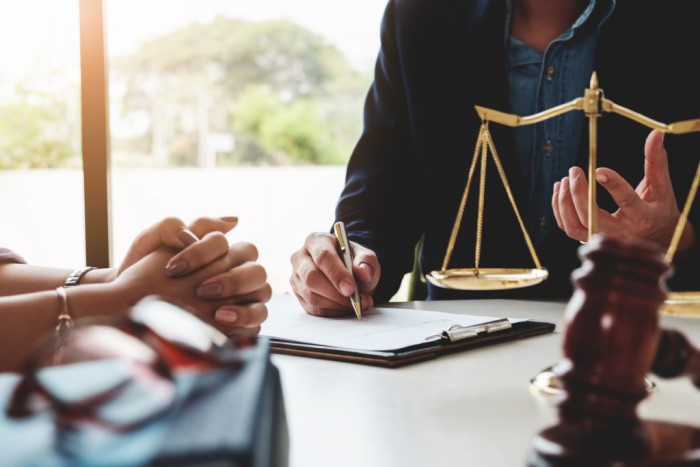Motorcycle Accident and Depression: Getting Help and Support
Struggling with the aftermath of a motorcycle accident and dealing with depression? Discover how to seek help and support, with practical advice and resources for recovery.
A Journey of Healing and Support
The road to recovery after a motorcycle accident can be fraught with physical, emotional, and mental challenges. For many survivors, the experience may lead to feelings of depression and anxiety. However, it’s essential to recognize that you’re not alone in this journey. There are various avenues for seeking help and support to navigate through these tough times.
Understanding the Impact
Coping with the Aftermath
The aftermath of a motorcycle accident can leave lasting scars, both physical and emotional. From dealing with injuries to coping with the trauma of the incident itself, survivors often find themselves struggling to regain a sense of normalcy in their lives.
Recognizing Depression
Depression is a common yet often overlooked consequence of a motorcycle accident. The emotional toll of such an event, coupled with the challenges of recovery, can exacerbate feelings of sadness, hopelessness, and despair.
Seeking Professional Help
Therapy and Counseling
One of the most effective ways to address depression after a motorcycle accident is through therapy and counseling. Speaking with a qualified mental health professional can provide a safe space to process emotions, develop coping strategies, and work towards healing.
Medication Management
In some cases, medication may be prescribed to help manage symptoms of depression. Antidepressants can be effective in regulating mood and alleviating the psychological distress associated with the accident.
Building a Support System
Family and Friends
Lean on your support network of family and friends during this challenging time. Surrounding yourself with loved ones who care about your well-being can provide comfort, encouragement, and practical assistance as you navigate the road to recovery.
Support Groups
Connecting with others who have experienced similar challenges can be incredibly beneficial. Joining a support group for motorcycle accident survivors or individuals dealing with depression can offer valuable peer support, shared experiences, and a sense of community.
Self-Care Strategies
Prioritizing Physical Health
Taking care of your body is crucial for overall well-being. Make sure to attend medical appointments, follow prescribed treatment plans, and engage in activities that promote physical healing and rehabilitation.
Nurturing Mental Health
In addition to professional help, practicing self-care techniques can help alleviate symptoms of depression. Engage in activities that bring you joy, such as hobbies, exercise, mindfulness, or creative pursuits.
Setting Realistic Goals
Recovery is a journey, and it’s essential to be patient and kind to yourself along the way. Set small, achievable goals to work towards, celebrate progress, and acknowledge the resilience and strength it takes to overcome adversity.
Motorcycle Accident and Depression: Getting Help and Support
Navigating life after a motorcycle accident while dealing with depression can feel overwhelming, but remember that help and support are available. By reaching out for assistance, whether through therapy, support groups, or self-care practices, you can take positive steps towards healing and rebuilding your life.
FAQs (Frequently Asked Questions)
- How common is depression after a motorcycle accident? Depression is a common experience for many individuals after a traumatic event like a motorcycle accident. It’s essential to seek support and professional help if you’re struggling with your mental health.
- What are some signs of depression to watch out for? Symptoms of depression can vary from person to person but may include persistent sadness, loss of interest in activities, changes in appetite or sleep patterns, feelings of worthlessness or guilt, and difficulty concentrating.
- Is it normal to feel anxious or fearful about riding a motorcycle again after an accident? It’s entirely normal to experience fear or anxiety about riding again after a motorcycle accident. Take your time and only return to riding when you feel ready. Consider seeking guidance from a professional or joining a support group for additional reassurance.
- How can I support a loved one who is struggling with depression after a motorcycle accident? Be there for them, listen without judgment, and offer your unconditional support. Encourage them to seek professional help if needed and engage in self-care activities together.
- Are there any online resources or helplines available for individuals dealing with depression after a motorcycle accident? Yes, there are various online resources, helplines, and support groups specifically tailored to individuals coping with depression after a motorcycle accident. These resources can provide valuable information, peer support, and assistance in finding professional help.
- Can depression after a motorcycle accident be treated? Yes, depression is a treatable condition. With the right support, including therapy, medication, and self-care practices, many individuals can manage their symptoms and lead fulfilling lives.
Conclusion
Recovering from a motorcycle accident while dealing with depression is a challenging journey, but it’s one that you don’t have to face alone. By reaching out for help, building a support system, and prioritizing self-care, you can navigate through these difficult times and emerge stronger on the other side.



